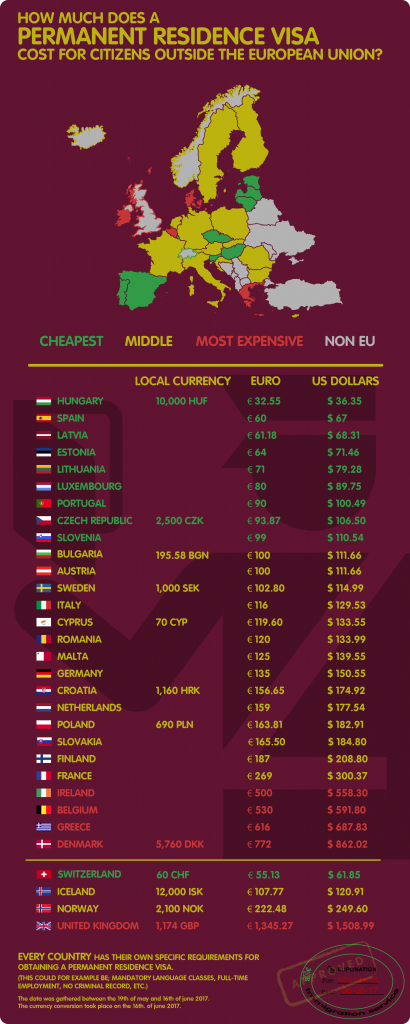Non-EU citizens applying for a permanent residence permit in Denmark pay the second-highest fee in the EU, according to new stats from the German-based online savings platform CupoNation.
According to the stats, non-EU citizens have to fork out 5,760 kroner in fees for a permanent residency permit – the second highest in the EU, behind only the soon-to-be-leaving UK (10,000 kroner).
The most affordable country to apply for a permanent residence permit in Europe is Hungary, where applicants have to pay a paltry 242 kroner.
READ MORE: Government proposes more stringent permanent residence legislation
Dearest in the Nordics
It’s far more affordable in the other Nordic countries, where prices range from Sweden’s 760 kroner to Iceland (801), Finland (1,390) and Norway (1,641).
It’s also far more affordable in Spain, Lithuania, Latvia, Estonia, Luxembourg, the Czech Republic, Portugal and Slovenia, which all process permanent residency permits for fees less than 740 kroner. Among the nations with more expensive fees are Belgium, Ireland and Greece.
It should also be mentioned that the criteria for obtaining permanent residence varies from country to country. In Denmark, the legislation is stringent compared to many other nations.
See the entire price list below (Previously, Lithuania had been listed as being the second most expensive country on the list. Following some digging it has become clear that CupoNation was incorrect in its figures for Lithuania. In fact, Lithuania is among the most affordable nations in the EU to get permanent residence at just 525 kroner. We apologise for the error).
















